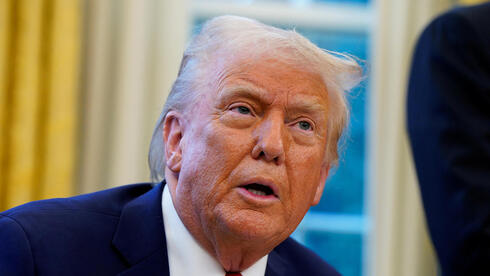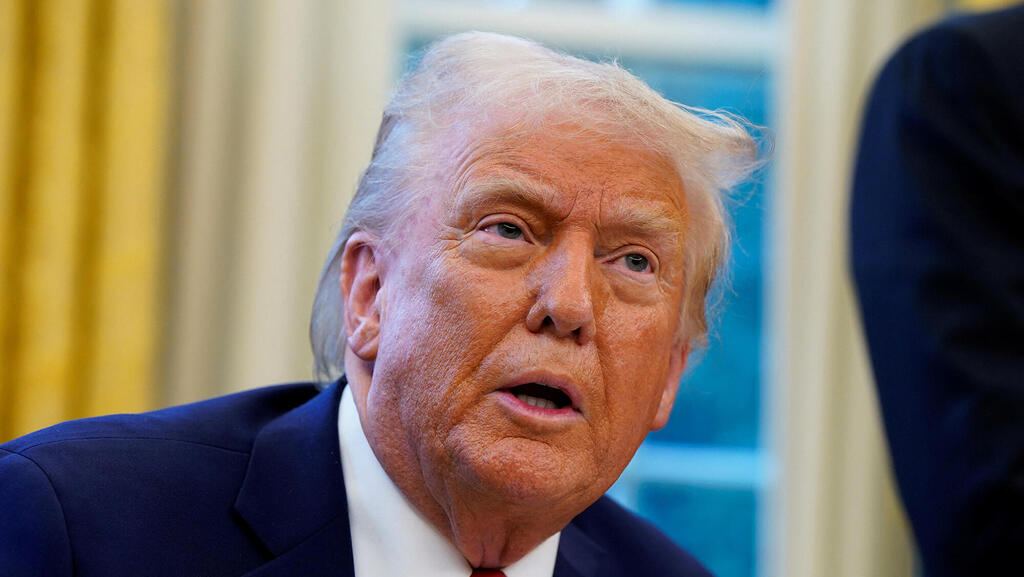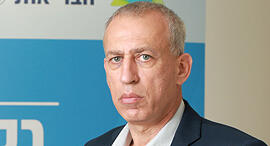
Trump’s new health policy shake-up threatens global scientific collaboration
Israeli health officials warn of ripple effects from NIH budget cuts and CDC report suspensions.
After the Trump administration previously threatened to cut the budget of the National Institutes of Health (NIH), the world’s largest public funder of biomedical research, reports began to emerge on Tuesday about a reexamination of research grants, work trips, and training programs for scientists both within and outside the institute. For example, it was announced that studies scheduled for publication in the official journal of the Centers for Disease Control and Prevention (CDC), such as weekly morbidity and mortality reports, had been halted.
According to a CNN report, these scientific reports were suspended by direct order from federal health agencies now staffed by Trump appointees. The order stipulates that "any document intended for publication must be reviewed and approved by a presidential official." ABC reported that an email from the Department of Health instructed the immediate suspension of all CDC-funded programs and activities related to "gender ideology."
Former CDC officials stated that, historically, there had always been "Chinese walls" separating the agencies' scientific publications from political influence, and that this is the first time since 1952 that the publication of such reports has been paused. "If this continues for long, it will constitute censorship," they warned. A CDC spokesperson responded, "This is a brief pause to allow the new team to define new review processes and priorities."
As noted, Trump is again threatening to cut the NIH budget, as he did during his first term, though no significant cuts were ultimately made at that time. In fiscal year 2024, the NIH budget was approximately $47.7 billion. About 83% of this funding supported research outside the institute—at universities, medical schools, and other institutions, including those outside the U.S. (such as in Israel). Around 11% of the budget was allocated to research conducted by approximately 6,000 NIH scientists based mainly at the institute's Bethesda, Maryland campus. The remaining 6% covered research support, administrative costs, and facility maintenance and operations. The NIH’s mission is to improve health outcomes, such as life expectancy and reduced morbidity, across the U.S.
"It looks dramatic"
At this stage, it remains unclear what, if anything, will be cut or the exact direction of the Trump administration’s policy. However, the scientific community—both in the U.S. and internationally, including in Israel—is concerned about potential repercussions. Israel’s Health Ministry Director-General, Moshe Bar Siman Tov, noted that while details are still unclear and it’s too early to fully understand the situation, "this seems to be a dramatic development."
The Health Ministry’s Chief Scientist, Prof. Avi Israeli, added, "These are central institutions for the entire world and for Israel. Cooperation with them is very important. I hope this is only temporary."
However, these statements remain diplomatic. "This is a colossal blow," said Prof. Yossi Tam, director of the Interdisciplinary Center for Cannabinoid Research at the Hebrew University and an NIH alumnus. "This cut will affect both internal and external budgets. It will hinder the recruitment of postdoctoral fellows to work outside the NIH and impact the institution’s own research. Additionally, it will limit funding for universities to conduct independent research. This is a sweeping blow not just for the U.S. but also for us, as there are Israeli researchers who receive NIH grants or collaborate with American researchers funded by the NIH."
Still, Tam sought to reassure: "Historically, every Republican administration has found a way to cut NIH budgets. Sometimes it's related to stem cell research; other times, it's another issue. They may freeze budgets initially, but over time, they often realize that without research, progress stalls, and then they gradually restore funding."
"This move could have an impact on three levels"
Prof. Nachman Ash, chairman of the National Institute for Health Policy Research (NIHP), outlined the potential impact on three levels. "First, there’s the immediate effect, creating uncertainty for researchers with active grants or those planning internships. I don’t know how many are affected in Israel, but I’m sure there are quite a few. Many Israeli doctors spend part of their careers in the U.S., forging important professional connections."
The second level, according to Ash, concerns the broader impact on Israeli research. "Israel is deeply influenced by changes in U.S. research priorities, particularly regarding restrictions on certain topics. If specific fields lose funding, this will inevitably affect us professionally."
The third, and perhaps most concerning, is the risk of political interference in Israeli medical research. "I lead a research institute funded by the Ministry of Health. While we have a good dialogue and maintain our independence, there’s always a fear that, one day, political interference could seep into professional and research activities here as well. This is a significant risk. I hope the professional community remains vigilant and knows how to resist such pressures."
"Repairing the damage will be slow"
Ash also warned that the damage from such decisions could take years to repair. "Trump has returned with determination and experience, promising drastic and rapid changes. However, the mechanisms to undo the harm are much slower." He identified two key areas of concern: first, the stifling of medical and technological innovation due to reduced research funding; and second, the erosion of public trust in science and healthcare professionals. "Attacks on the scientific community ultimately harm the public."
Dr. Adi Niv-Yagoda, a health policy expert, echoed these concerns. "Even more than during his first term, Trump is undermining the medical establishment and scientific community, severely damaging the cornerstone of effective healthcare systems—public trust. Without it, both individual and public health suffer."
According to Niv-Yagoda, "These actions foster an environment ripe for misinformation, risky behaviors, and conspiracy theories. We’ve already seen the consequences in declining vaccination rates in Israel and globally, reflecting diminished public confidence in science. This distrust is further evident in efforts to appoint figures like Robert F. Kennedy Jr., an outspoken vaccine skeptic, to leadership roles in public health."
Looking ahead, Niv-Yagoda added, "When a new president is elected, some of these harmful policies may be reversed. However, rebuilding public trust in the health system and scientific community will take many years—long after Trump leaves office."
Both Ash and Niv-Yagoda suggested that the Trump administration’s actions reflect not just budgetary priorities but also a broader agenda. Ash dismissed claims that these cuts are purely for fiscal reasons. "There are other ways to balance the budget. You don’t hear about cuts to defense research. The targeted nature of these cuts sends a clear message: 'I don’t believe in the science you’re doing, and I’ll show you how it should be done.'"
Niv-Yagoda concluded, "I have no doubt that if, heaven forbid, Trump himself needed medical care, he would seek treatment from the very institutions and doctors he’s undermining—relying on innovative drugs and technologies developed through the research he’s now defunding. Sadly, it’s his supporters and the broader public who will ultimately pay the price for this erosion of trust in the medical establishment."















